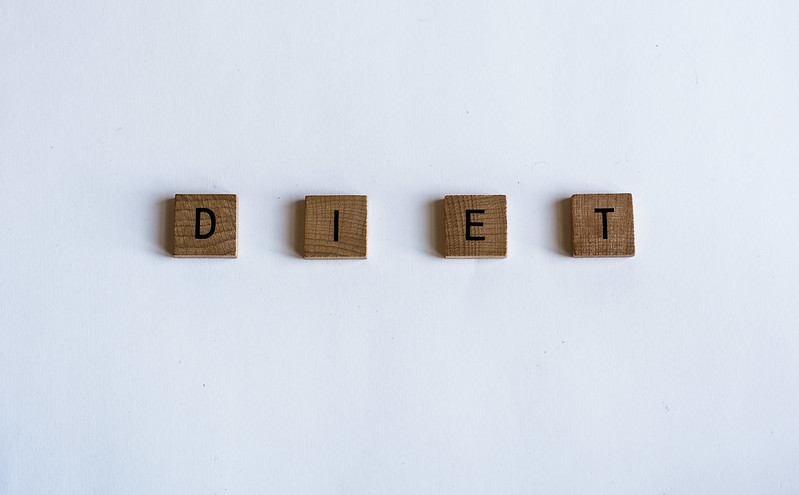Is Your Body Ready for Weight Loss? What You Should Know Before Trying to Lose Weight

Published: July 31, 2023
It can feel like there is a dichotomy between weight loss and the anti-diet space. The desire to lose weight can even create feelings of shame. First off, know we are here to support you on whatever health journey you choose because we believe it’s ultimately your decision! However, we also want you to provide the evidence and you need to make an informed decision about whether weight loss is right for you at this time in your life.
Before we begin, it’s important to note that if you have a history of an eating disorder, attempting to lose weight can cause relapse. If you this or any other health conditions, you should consult with a registered dietitian and your physician before making any changes to your diet.

Calorie Deficits Are Inherently Stressful
Before diving into a calorie deficit, it’s crucial to know that weight loss puts stress on your body.1 If you are someone who is already dealing with many stressors, weight loss may not be the best decision for your health.
- Cortisol: Cortisol increases during stressful events, including dieting. One study found that monitoring calories and being in a calorie deficit increased cortisol levels in women.1 It’s important to note that cortisol is not “bad”. It’s just the body’s way of protecting itself from harm. This so-called “stress hormone” can lead to increased appetite, making weight loss harder to achieve.2 Long term high cortisol levels can lead to hypothalamus-pituitary-adrenal (HPA) axis dysfunction and a whole host of health problems.3
Weight Loss Attempts Can Backfire for Chronic Dieters
If you have been dieting for a long time, your body might be especially resistant to further weight loss attempts. This is because chronic dieting can cause adaptations that make your body desire more food and burn less.
- Leptin & Ghrelin: Leptin is known as the “fullness hormone,” while ghrelin is the “hunger hormone.” As we lose weight, our gut releases less leptin and more ghrelin in an effort to stop continued weight loss from happening and preserve itself. Weight regain can happen due to these changes, causing increased appetite and food intake.4,5,6
- Metabolic Adaptation: Again, weight loss is stressful on the body, so the body slows its metabolism to prevent from losing more weight. This can increase the length of time needed to reach weight loss goals, which may leave you feeling frustrated.7,8

Calorie Deficits Can Negatively Affect Hormonal Health
Another vital consideration before embarking on a calorie deficit is the potential impact on your hormonal health. Drastically reducing your calorie intake could:
- Disrupt menstrual cycles in women 9
- Lower testosterone levels in men 10
- Reduce thyroid function, leading to fatigue and weight gain11
Prepare Your Body for Weight Loss: Reduce Stress, Eat Adequately, and Don’t Overexercise
To ensure your body is truly ready for weight loss, take the following steps:
- Reduce stress: Stress management techniques like mindfulness, meditation, therapy, or even just talking to a friend can help keep cortisol levels in check. It’s important to minimize outside stressors when trying to lose weight.
- Reverse diet: Use the Mifflin-St. Jeor calculator to find your total daily energy expenditure (including your activity level). This is the amount of calories your body burns daily, on average. Eating adequate calories and protein will help reduce stress on your body and protect your muscle mass. Reverse dieting is best done under the supervision of a registered dietitian.
- Watch your exercise intensity: If you workout almost daily and feel constantly sore, fatigued or lacking in strength, chances are, you’re exercising too much.12 Try reducing the intensity of your workouts by engaging in more strength-based training. Muscle mass can also help increase metabolism and facilitate weight loss.13

Summary
It’s important to understand how the body reacts to a calorie deficit before attempting one. Stress, chronic dieting and certain metabolic health conditions can affect how your body responds. If you do choose to lose weight, always work with a registered dietitian and your physician to ensure you are going about it in a gentle, nourishing way so you don’t lose muscle mass or develop nutrient deficiencies.
If you’re ready to take the next step, Kyla can help! You’ll receive personalized guidance from healthcare professionals, including a registered dietitian, who can help you optimize your nutrition and wellness. Experience Kyla’s Longevity program and discover a tailor-made plan just for you today!
References
- Tomiyama AJ, Mann T, Vinas D, Hunger JM, DeJager J, Taylor SE. Low calorie dieting increases cortisol. Psychosom Med. 2010;72(4):357-364. doi:10.1097/psy.0b013e3181d9523c
- Hewagalamulage SD, Lee TK, Clarke IJ, Henry BA. Stress, cortisol, and obesity: a role for cortisol responsiveness in identifying individuals prone to obesity. Domest Anim Endocrinol. 2016;56 Suppl:S112-20. doi:10.1016/j.domaniend.2016.03.004
- Thau L, Gandhi J, Sharma S. Physiology, Cortisol. StatPearls Publishing; 2022.
- Pradhan G, Samson SL, Sun Y. Ghrelin: Much more than a hunger hormone. Curr Opin Clin Nutr Metab Care. 2013;16(6):619-624. doi:10.1097/mco.0b013e328365b9be
- Busetto L, Bettini S, Makaronidis J, Roberts CA, Halford JCG, Batterham RL. Mechanisms of weight regain. Eur J Intern Med. 2021;93:3-7. doi:10.1016/j.ejim.2021.01.002
- Crujeiras AB, Goyenechea E, Abete I, et al. Weight regain after a diet-induced loss is predicted by higher baseline leptin and lower ghrelin plasma levels. J Clin Endocrinol Metab. 2010;95(11):5037-5044. doi:10.1210/jc.2009-2566
- Martínez-Gómez MG, Roberts BM. Metabolic adaptations to weight loss: A brief review: A brief review. J Strength Cond Res. 2022;36(10):2970-2981. doi:10.1519/JSC.0000000000003991
- Martins C, Gower BA, Hunter GR. Metabolic adaptation delays time to reach weight loss goals. Obesity (Silver Spring). 2022;30(2):400-406. doi:10.1002/oby.23333
- Williams NI, Leidy HJ, Hill BR, Lieberman JL, Legro RS, De Souza MJ. Magnitude of daily energy deficit predicts frequency but not severity of menstrual disturbances associated with exercise and caloric restriction. Am J Physiol Endocrinol Metab. 2015;308(1):E29-39. doi:10.1152/ajpendo.00386.2013
- Cangemi R, Friedmann AJ, Holloszy JO, Fontana L. Long-term effects of calorie restriction on serum sex-hormone concentrations in men. Aging Cell. 2010;9(2):236-242. doi:10.1111/j.1474-9726.2010.00553.x
- Douyon L, Schteingart DE. Effect of obesity and starvation on thyroid hormone, growth hormone, and cortisol secretion. Endocrinol Metab Clin North Am. 2002;31(1):173-189. doi:10.1016/s0889-8529(01)00023-8
- Cronkleton E. Signs of overtraining: 13 tip-offs and what to do. Healthline. Published April 17, 2020. Accessed June 14, 2023. https://www.healthline.com/health/signs-of-overtraining
- Cava E, Yeat NC, Mittendorfer B. Preserving Healthy Muscle during Weight Loss. Adv Nutr. 2017;8(3):511-519. doi:10.3945/an.116.014506